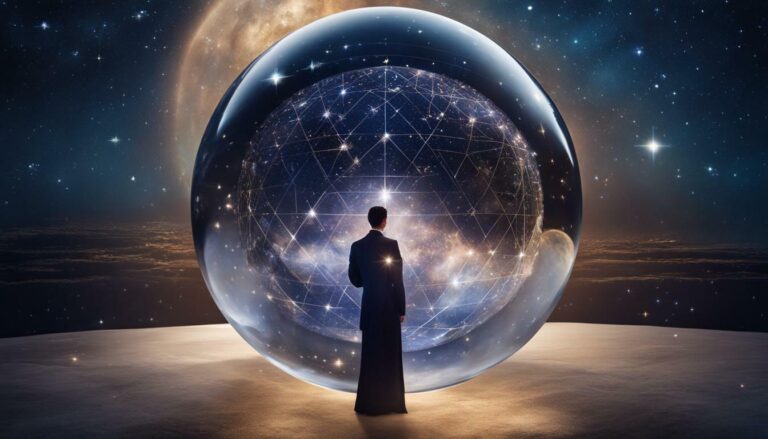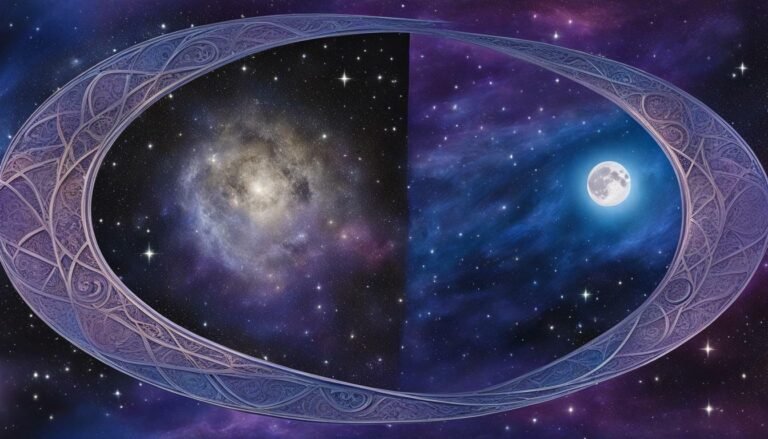People Who Believe in Astrology
Do you find yourself checking your horoscope daily and relying on the alignment of stars and planets to guide your decisions? You’re not alone. Many Americans believe in astrology and turn to it for insights into their lives, relationships, and personalities. Whether you’re a casual enthusiast or a devoted follower, astrology has captured the fascination of a significant portion of the population.
A YouGov poll reveals that around 27% of Americans believe in astrology, with the highest belief among adults under 30. Women are slightly more likely than men to believe in the influence of stars and planets on behavior. Additionally, Black and Hispanic Americans show a higher inclination towards astrology compared to their White counterparts. It’s interesting to note that Catholics, agnostics, and those without a particular religion are more likely to believe in astrology than Protestants and Jewish Americans. Interestingly, atheists are the least likely to believe in astrology.
(Source: YouGov)
Key Takeaways:
- Around 27% of Americans believe in astrology, with the highest belief among young adults.
- Women are slightly more likely than men to believe in astrology.
- Black and Hispanic Americans are more likely to believe in astrology compared to White Americans.
- Catholics, agnostics, and those without a particular religion have a higher belief in astrology compared to Protestants and Jewish Americans.
- Atheists are the least likely to believe in astrology.
Demographic Variations in Belief in Astrology
The belief in astrology varies across different demographics. Among educational groups, individuals with a high-school degree or less and those with only a college degree are equally likely to believe in astrology. However, people with an advanced degree are slightly less likely to believe.
Geographically, Americans living in the Northeast and West are more likely to express a belief in astrology compared to those in the South and Midwest. It seems that astrology has a stronger following in regions known for their diverse spiritual practices and alternative lifestyles.
When it comes to political affiliation, there are some differences as well. Democrats are more likely to know their astrological sign compared to Republicans. This could be influenced by cultural factors and openness to different belief systems.
Moreover, it is interesting to note that when asked about their astrological sign, 90% of Americans are aware of their sign. This suggests that astrology has permeated popular culture and has become a common topic of conversation among astrology lovers and enthusiasts.
In summary, belief in astrology varies among different demographic groups, with education, geography, and political affiliation playing a role. Despite any skepticism, astrology continues to captivate the imaginations of astrology lovers and fans who find meaning and guidance in the celestial world.
Intelligence and Personality Traits of Astrology Believers
Believing in astrology is a captivating concept that attracts a diverse array of individuals, including zodiac believers, horoscope followers, and those with deep astrological beliefs. However, a study conducted by psychologists at Lund University sheds light on some interesting findings regarding the intelligence and personality traits of astrology believers.
The study revealed that people who believe in astrology tend to have lower intelligence levels compared to the average population. This correlation between astrology belief and intelligence raises intriguing questions about the motivations and thought processes of astrology enthusiasts.
Additionally, the study found that astrology believers scored higher on narcissistic measurements. This suggests that astrology may attract individuals who have a more self-focused outlook and perceive themselves as special individuals with natural leadership abilities.
It is important to note that this study focused on a specific group of individuals and does not apply to all astrology believers. Astrology, like any other belief system, can attract a wide range of people with varying intelligence levels and personality traits.
The Influence of Astrology on Important Life Decisions
Despite the lack of scientific evidence supporting astrology, it continues to have a significant impact on the way many people make important life decisions. Astrology lovers and fans believe that the alignment of stars and planets can provide guidance and insights into their personalities and future outcomes. However, a study conducted in Sweden challenges the reliability of astrological predictions in determining the success or failure of romantic relationships.
In this study, researchers found no evidence to suggest that the compatibility of a couple’s star signs had any effect on whether they stayed together or eventually divorced. This finding suggests that astrology may not be a reliable predictor of relationship success. While astrology continues to be a popular belief system, this study calls into question the accuracy of astrological principles in making life-altering decisions.
Despite the lack of scientific validation, belief in astrology remains widespread and is often associated with spiritual and religious inclinations. Astrology enthusiasts may turn to their horoscopes for guidance in matters of love, career, and personal development. However, it is important to approach astrology with a critical mindset and consider alternative factors when making important decisions.
While astrology may not provide concrete answers, it can still serve as a source of comfort and inspiration for astrology lovers. The allure of astrology lies in its ability to offer a sense of connection to something larger than ourselves and provide a framework for understanding the complexities of our personalities and life paths.

Conclusion
Belief in astrology is widespread among astrology enthusiasts in the United States, particularly among younger adults and certain religious groups. While studies have shown a correlation between belief in astrology and certain personality traits, it is important to note that astrological beliefs can vary significantly among individuals. Although astrology lacks scientific validity, it continues to attract a dedicated following of astrology believers.
Understanding the factors that influence belief in astrology can provide valuable insights into the diverse motivations behind astrological beliefs. While skepticism may remain regarding the accuracy of astrological predictions, astrology enthusiasts find personal meaning and guidance through their astrological interpretations.
Ultimately, astrology serves as a cultural and spiritual framework for many astrology believers, offering a sense of connection to the universe and providing guidance in various aspects of life. The enduring popularity of astrology demonstrates the human desire for meaning and the importance of embracing and respecting diverse belief systems, including astrological beliefs.
FAQ
What percentage of Americans believe in astrology?
Approximately 27% of Americans believe in astrology, according to a YouGov poll.
Who is more likely to believe in astrology?
The belief in astrology is slightly higher among women than men, and Black and Hispanic Americans are more likely to believe in the influence of stars and planets on behavior compared to White Americans.
Which religious groups are more likely to believe in astrology?
Catholics, agnostics, and people with no particular religion are more likely to believe in astrology than Protestants and Jewish Americans.
Are people with higher education less likely to believe in astrology?
People with an advanced degree are slightly less likely to believe in astrology, according to the YouGov poll.
Which regions of the United States have a higher belief in astrology?
Americans living in the Northeast and West are more likely to express a belief in astrology compared to those in the South and Midwest.
What did the study from Lund University find about astrology believers?
The study found that people who believe in astrology tend to be less intelligent than the average population and scored higher on narcissistic measurements.
Is astrology a reliable predictor of relationship success?
A study conducted in Sweden found no evidence that the compatibility of a couple’s star signs had any effect on whether they stayed married or divorced, suggesting that astrology may not be a reliable predictor of relationship success.
What personality traits are associated with belief in astrology?
Studies have found that astrology appeals to narcissists who view themselves as unique and superior, while agreeable individuals may find astrology compatible with their prosocial nature.
How prevalent is belief in astrology among the American population?
Belief in astrology is prevalent among a significant portion of the American population, particularly among younger adults and certain religious groups.
Does belief in astrology have scientific validity?
Although studies have found a correlation between belief in astrology and certain personality traits, it is important to recognize that astrology beliefs can vary widely among individuals and do not have scientific validity.
What can understanding the factors influencing belief in astrology provide?
Understanding the factors influencing belief in astrology can provide insight into the diverse motivations behind these beliefs.







